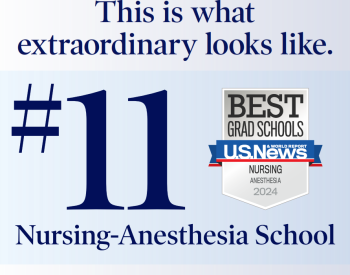
Have you wondered how you can make a difference in the lives of fellow nurses? Becoming a nurse educator is a chance to serve the nursing community and shape the future of nursing. But what is a nurse educator exactly? Have you wondered how you can make a difference in the lives of fellow nurses? Becoming a nurse educator is a chance to serve the nursing community and shape the future of nursing. But what is a nurse educator exactly?
Nurse educators play a key role in academic and hospital settings, allowing you the opportunity to shape your specialty in education and practice. No matter where you are in your nursing career, you can turn your experience and skills into a fulfilling career path teaching nurses how to excel.
What is a Nurse Educator?
A nurse educator is a highly experienced nurse who serves as a teacher for nursing students and professional nurses in a variety of clinical and academic settings.
For example, nurse educators might help train new nurses or offer professional development to long-time nurses in locations like:
Colleges, universities and technical schools
Hospitals and primary care facilities
Community clinics and health care agencies
In their role as a teacher in higher education, nurse educators prepare future nurses of all levels and in a wide range of practice areas, such as acute care, geriatrics or oncology. In clinical settings, the role shifts to training nurses to help them get up to speed on ever-evolving healthcare technology and evidence-based nursing practices.
“New nurses entering practice must receive teaching and learning from nurse educators who are educationally prepared to transition graduate and nursing students through the complexities of healthcare and technology. Nurse educators in the practice setting have an equally challenging role and can provide guidance through a variety of learning platforms to keep practice nurses and practitioners up to date on trends and issues in healthcare.”
— Teri Boyd, EdD, MSN, RN, Director of Nurse Educator Program, Barnes-Jewish College Goldfarb School of Nursing
Career Prospects
Just like nursing as a whole, there’s opportunity everywhere for nurse educators. It’s also a path that’s open to nurses throughout their professional lives: early- mid- or late-career. Nurses who are interested in preparing and providing teaching and learning to future nurses, practitioners, and currently practicing nurses might find the nurse educator career path fulfilling to their personal and professional growth.
Nurse Educator Salary & Demand
According to the latest information from the Bureau of Labor Statistics, nurse educators have an average annual wage of $81,320. There is greater salary potential in hospital settings compared to academic institutions, but the majority of employment opportunities are in colleges and universities.
The demand for nurse educators is likely to increase in the coming years, with employment projected to increase by 24% from 2016 to 2026. This is due in large part to the ongoing nursing shortage and the need for more nurse educators to train students. According to the American Association of Colleges of Nursing (AACN), nursing schools turned away more than 75,000 qualified applicants in 2018, and most identified faculty shortages as a reason for not accepting more students.
Education Requirements
Wondering what kind of education a nurse educator needs? In addition to hands-on experience and advanced practice as an RN, you’ll need at least a Master’s degree to work as a nurse educator. Some positions require a Master’s of Nursing Science (MSN), while teaching positions at universities often look for doctorate-level preparation.
Degree Programs at Goldfarb School of Nursing
Barnes-Jewish College Goldfarb School of Nursing offers a convenient nurse educator degree for registered nurses who want to build their careers as nurse educators. As part of our Master of Science in Nursing Program, we offer a full- or part-time Nurse Educator Concentration that is entirely online and prepares you for a career in academic or clinical settings.
If you’ve already earned an MSN or Ph.D., or are in the process of finishing your graduate program, we also offer an online Post-Master’s Nurse Educator Certificate. This part-time, year-long program combines your advanced practice experience with new skills in patient and academic education. As such, it’s also an excellent option for nurse practitioners, clinical nurse specialists, certified nurse anesthetists, and certified nurse midwives who want to expand their existing career path.
Becoming a Certified Nurse Educator
Once you meet the required levels of education and experience, the National League of Nursing (NLN) offers a certification program for nurse educators. While becoming a Certified Nurse Educator or Certified Academic Clinical Nurse Educator isn’t required, it’s a mark of distinction that demonstrates your expertise and commitment to the profession. To that end, our students are prepared to take the CNE exam upon completion of needed work experience.
Pursue a Path in Nursing Education
As nurses, our desire to serve the community and support each other isn’t in short supply. Becoming a nurse educator is one way to funnel that energy into a career that leads to better patient outcomes as well as better nurses for the future.
Now that we’ve answered the “What is a nurse educator?” question, do you have other questions about this career path or its education requirements? Or, if you already work as a nurse educator, is there anything you want potential students to know? Please add your thoughts in the comments.
Follow the Blog via Email
Enter your email address to follow this blog and receive notifications of new posts by email.
Follow the Blog via Email
Enter your email address to follow this blog and receive notifications of new posts by email.


